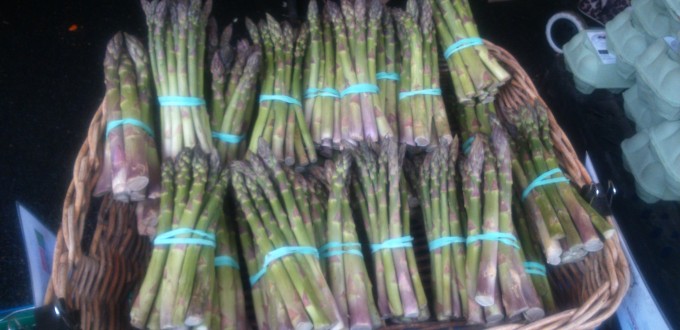I love working at the local farmers market, and do so every Sunday. For me, the farmers market is a place that restores my faith. It’s where I am reminded that I am not alone, that other local people want local foods and that they want to have that relationship with their egg man, their vegetable grower or the man who cares for the animals that eventually graces their plate. People are interested in quality, even when a typical shopper declares price as their primary motive, it’s not exclusively the case.
I’m not talking about everyone of course, I wish I were. Numbers and interest is growing in local produce. More and more of us are concerned with our health and our local economy. The BRC research every £10 spent in a local shop is actually worth £25 to the local economy. In a time when most of us are all feeling the pinch and pressures of tightening purse strings, local spending helps ease the strain. This is called the multiplier effect.
Recently, I saw this post on social media which stood out. There were nearly one million shares. There were also a high number of folks complaining the prices of their local farmers market were too high.
 The price of food, what we are now accustom to paying in the grocery store is the product of mass buying power from the supermarket giants.
The price of food, what we are now accustom to paying in the grocery store is the product of mass buying power from the supermarket giants.
It often dictates the prices for the producer and in some cases this leaves the producer in a very tenuous position. The producer is more often than not the lowest paid person on the food chain and the one who bears the brunt of that low cost food.
Do you, the consumer benefit? Yes, in a way. The consumer benefits from the conglomerates buying power because they are able to buy cheaper product as the end result. The down side of this of course, is that a producer who can not make a profit growing vegetables or meat or grains won’t be doing so forever. No regular business in the world would continue to operate at a year on year loss, it’s simply impossible. If a business model is unsustainable, one can rightly assume the business model will change – or shut down. Imagine, producers stopping production. Demand for the product, in this case food, isn’t going to stop. We all need to eat. Where does that leave us? While it may seem a “bargain” in the short term, we may actually be setting precedence for an even more expensive future.
By expecting our food to be “cheap” we’re refusing to acknowledge that a farm is a business like any other that must also provide a living wage for the workers on that farm. The farmers market is a direct exchange between producer and consumer thus it is the most beneficial relationship for each party. The prices are a reflection of what the farmer feels is a fair exchange for the work he (or she) has done in order to bring a healthy product to you.
It’s funny when people complain about the cost of food but then buy soda or crisps or ready meals. These things are neither cheap or healthy, yet no one seems to complain that a 40g packet of crisps is 50p (more than 1p per gram). More than anything this behavior exemplifies the truth that if we want something badly enough, we do as a rule, find the money for it.
The only question you should be asking is, “How much is good, healthy food worth to me?”
